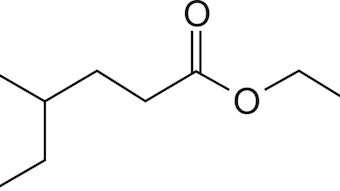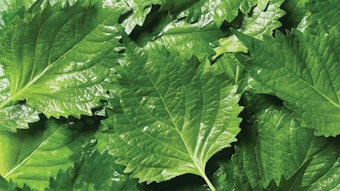In the January issue of Perfumer & Flavorist magazine, Steve Tanner (Arylessence Inc. president and CEO) discusses "Misconceptions Surrounding the Fragrance Industry." In his article, Tanner stresses the need for improved communication within and outside of the fragrance industry for the continued use of safe materials (both natural and synthetic). Unfortunately, as the media promotes all-natural fragrances as healthier for the consumer and the environment, synthetic fragrances are misperceived as unsafe. Here, P&Fnow chats with two Arylessence perfumers—Bruce Garlick and Heather Sims—to elucidate the benefits of synthetic ingredients and what the industry would look like if synthetics were lost from the palette.
P&Fnow: As you see it, what are some of the unique benefits of synthetics?
Garlick: First of all, with synthetics you have absolutely predictable color and odor stability. You have consistent odor quality regardless of climatic variations and harvest variations. Additionally, they are very easy to work with. In many cases synthetics are capable of replacing natural ingredients that are derived from endangered species or botanicals. For example, ambergris has not been used in perfumery for decades because of the ban on whale products, but perfumers have Ambrox and other similar materials. Currently, the situation with sandalwood oil is very severe because the trees were being depleted. Now we have so many different synthetics that do a wonderful job of replacing sandalwood oil that I believe most fragrance houses aren’t using the natural sandalwood any longer. The use of animal-derived products, such as musk, is also very sensitive. Certainly, the increase of synthetic musks available to perfumers has helped enormously. Those are really important benefits of synthetics to perfumers.
Sims: Our creative pallet at the moment would be tremendously depleted without the use of synthetic ingredients.
P&Fnow: What would the fragrance industry look like if synthetic materials were lost?
Sims: We wonder what would be left of fragrance houses. I think the loss from an economic standpoint would be tremendous. The industry would become an unaffordable luxury; only the wealthiest people would be able to use fragrances if we were left with just naturals. So, in addition to having a limited palette, it would be too expensive for the average consumer.
The effects on consumers would be devastating. The pleasures of daily life experienced through household and personal care use, both of which use huge quantities of synthetic ingredients, would disappear. Can you imagine laundry without fragrance and bathing in the morning without fragrance? All of the things that I think have become sort of subconscious pleasures would become obsolete.
Garlick: If synthetics were banned it would take us back to the state of the fragrance industry in the 19th century. As Heather mentioned, that was when fragrance was a true luxury. It wasn’t available to most people because of the cost. The perfumers’ palette at that time was a very limited one, consisting of just what could be derived from nature.
As for what would be lost if synthetics were banned … we would lose the very foundations of perfumery. We would lose the basic floral notes such as jasmine and rose because we couldn’t afford them. And we would lose muguet (lily of the valley) because it can only be created synthetically. The aliphatic aldehydes (such as aldehyde C-11) are something that perfumers almost take for granted these days. These ingredients are inexpensive; they have a remarkable effect on the performance and the aesthetic quality of a fragrance. They bring elegance and a complexity that you couldn’t achieve with natural ingredients.
Check out the final part of the interview in the January 23 edition of P&Fnow, where Garlick and Sims will discuss:
- their favorite synthetics
- examples of fine fragrances using synthetics
- how naturals and synthetics can work hand-in-hand to create successful fragrances










